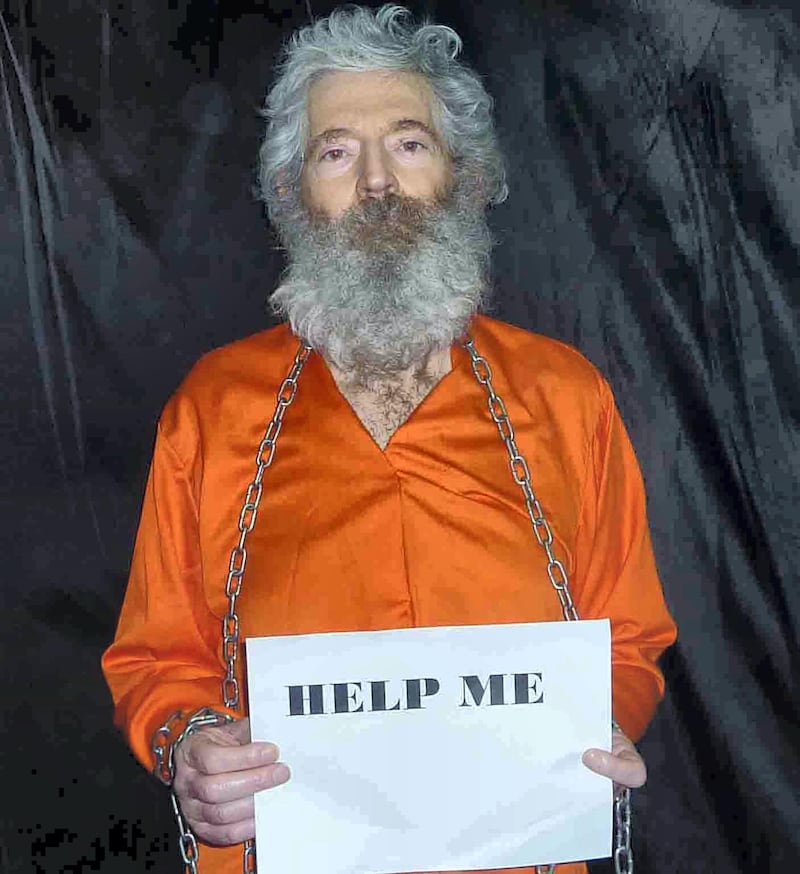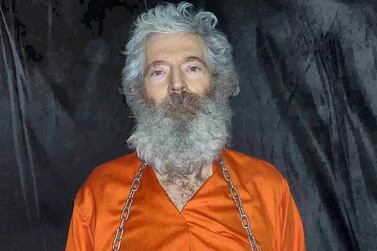The family of the longest-serving US prisoner in Iran will this week accuse the regime of unlawful hostage taking and torture in a ground-breaking legal claim.
Twenty-one relatives of Bob Levinson, a private investigator, will attend a courtroom in Washington DC to tell of how his disappearance in March 2007 devastated their lives.
The former FBI agent went missing on Kish Island, off the southern Iranian coast, where he was due to meet a witness for an investigation.
He was later said by Iranian state media to be held by security forces, court documents show.
The family is seeking damages against the regime, payable from a fund made up of seized assets and fines levied against banks for breaching Iranian sanctions.
The legal claim, first lodged in 2017, is similar to one from journalist and former detainee Jason Rezaian.
A judge last month said Mr Rezaian was entitled to receive $180 million for his 544 days held in an Iranian jail. He is likely to receive a small proportion of the award.
Legal experts said the Levinson family’s claim was different to others because of the uncertainty of the investigator’s fate.
After his disappearance, the family received emails from an unidentified terrorist group demanding changes to US policy and threatening his life.
The family was sent photos in 2011 showing him bound by chains and wearing an orange jumpsuit.
The FBI concluded the messages were part of an attempt to create a false trail to ensure Iran was not held responsible for what might happen to him, the family’s claim says.
“What we don’t know is how many days he’s been locked up and tortured,” said Stuart Newberger, a senior partner at US law firm Crowell and Moring, who has extensive experience of working on similar cases for more than two decades.
“It's a situation that's obviously difficult for his family. If he is alive, when is he going to get out?
"We don’t know if this is a wrongful death or a hostage case. That’s the unique part and what makes this so difficult for the court.”
Eight family members will give evidence before the court on Wednesday and Thursday, including Mr Levinson’s wife Christine.
“My children and I have had to live for 12 years with the knowledge that their father was being held by a hostile regime who routinely torture its prisoners,” Mrs Levinson said in a witness statement from January.
“The resulting grief and anguish have been difficult for all of us.”
Because the US does not have diplomatic relations with Iran, the papers in the case were served through the Swiss embassy in Tehran.
Iran has not responded to the claim, in line with other cases.
But Tehran did acknowledge for the first time last month that it had an open case before its courts over Mr Levinson’s disappearance. Iran told the UN that the case was “ongoing” without elaborating.
US courts have made awards of $46 billion to victims of Iranian terrorism including the families of 241 US soldiers killed in the 1983 bombing of a US marine barracks in Beirut.
The US courts in 2016 cleared the way for victims of state-sponsored terrorism to collect damages from seized Iranian assets. The fund paid out $1.1bn to victims of state-sponsored terrorism in 2017, State Department documents show.
Meanwhile, one of Mr Levinson’s daughters will join the husband of aid worker Nazanin Zaghari-Ratcliffe and former prisoner Nizar Zakka to highlight the plight of those that remain in Iranian jails at an event on Tuesday organised by US senators.
Mr Zakka, a Lebanese national resident in the US, was released in June after nearly four years in an Iranian prison. He had been accused of spying for the US.








